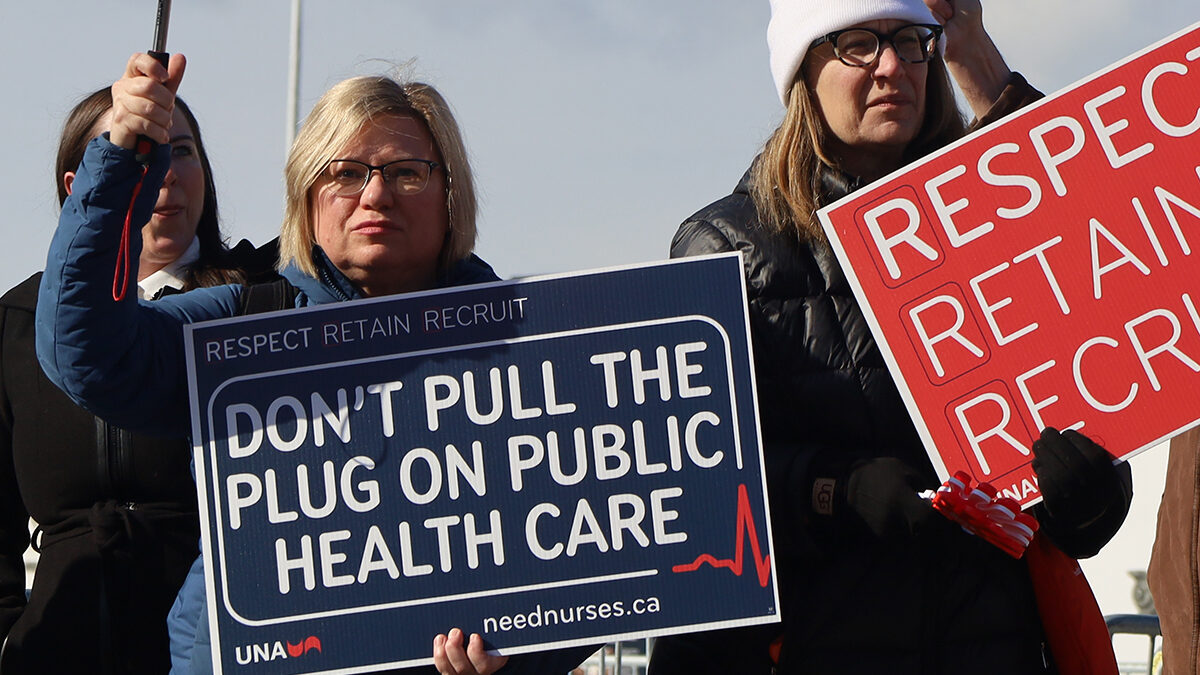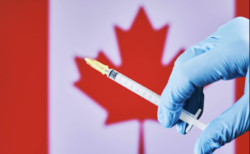Health-care workers and advocates gathered on Parliament Hill on Feb. 13 to protest creeping privatization of health care, calling on the federal government to speed up the delivery of its long-promised pharmacare plan while disavowing health-care privatization and advocating for increased funding for public health-care services across Canada.
The Feb. 13 rally was prompted by ongoing negotiations between the Liberals and the NDP, who have extended universal pharmacare system discussions into 2024 to introduce pharmacare legislation by March 1, 2024.
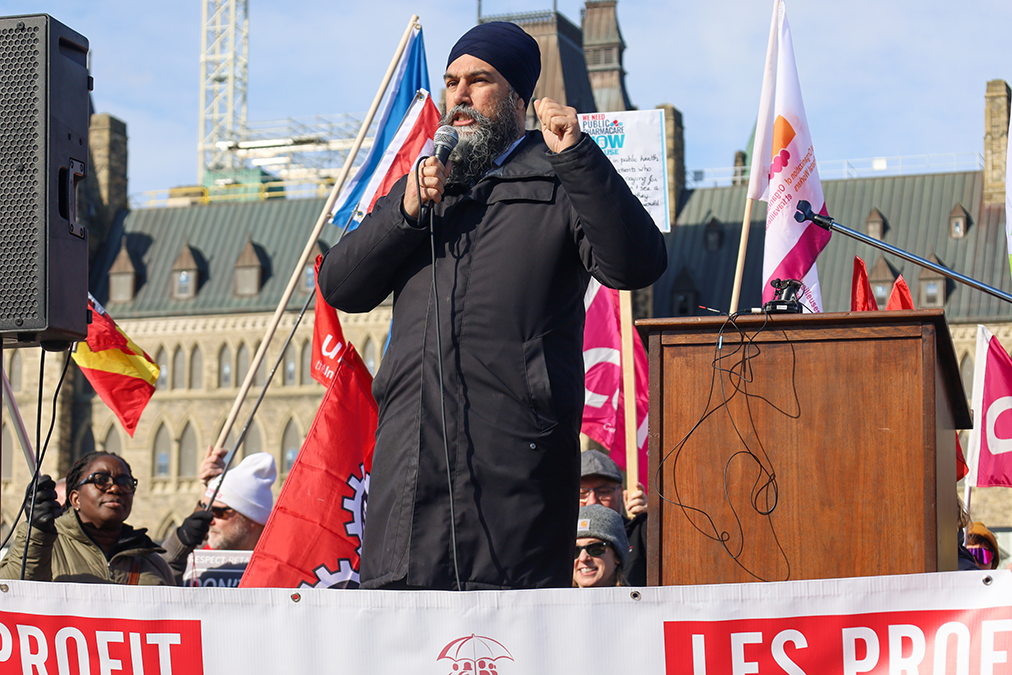
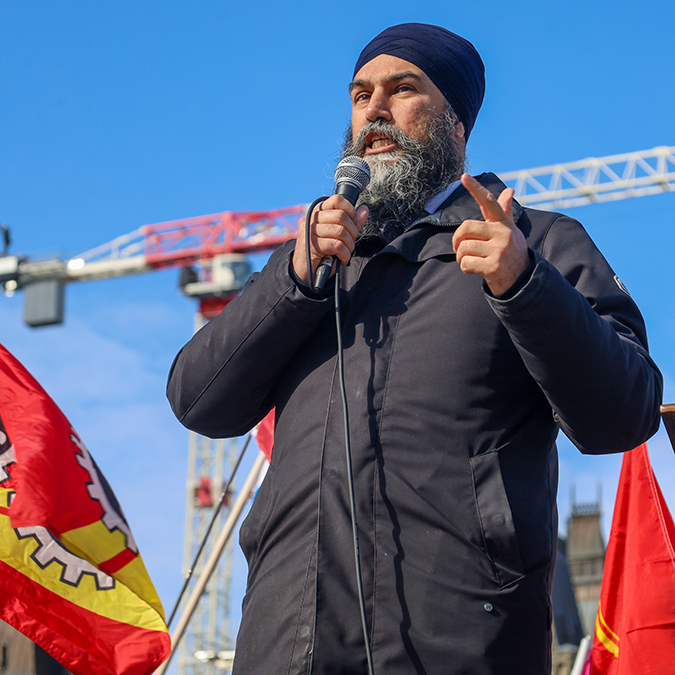

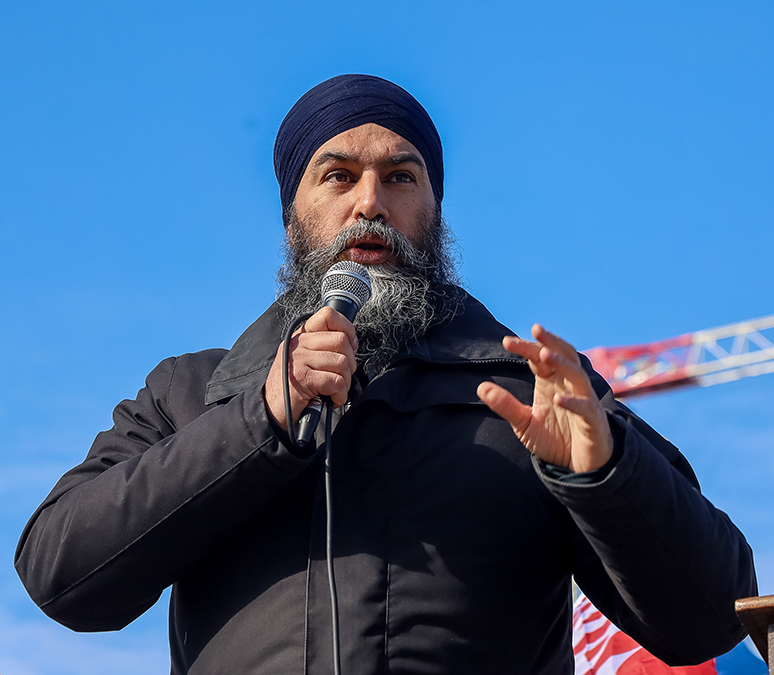

In 2019, an advisory council appointed by the federal government recommended establishing a universal, single-payer public pharmacare system, estimated to cost $15 billion annually. The council’s report predicts the amount spent on prescription drugs in Canada would drop by roughly $5 billion a year once fully implemented.
Alex Silas, Public Service Alliance of Canada union leader, who emceed the rally, periodically introducing speakers including Canadian Health Coalition chair Pauline Worsfold, president of Unifor Lana Payne, vice-president of the Canadian Labour Congress Siobhán Vipond and NDP leader Jagmeet Singh.
“We know people out there are suffering absolutely every single day. They can’t pay for their medications,” Worsfold said.
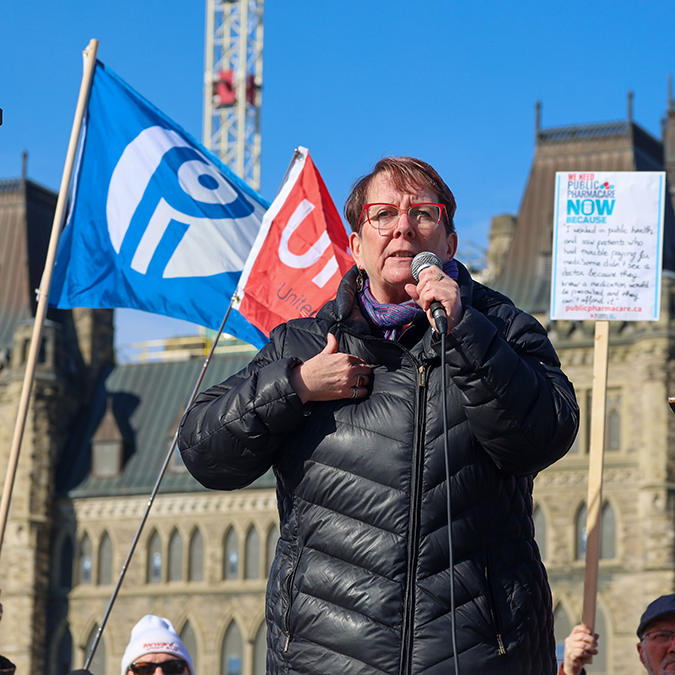

According to a 2021 survey, more than one in every five adults in Canada reported not having any prescription insurance to cover medication costs.
In a wealthy nation like Canada, individuals shouldn’t be faced with “tough decisions” like whether to purchase food, medication for themselves, or medicine for their children, Worsfold said to the crowd.
“We have the solutions. It’s a national public drug plan and pharmacare for all,” Worsfold said. “Do it now. Ignore us at your peril because this will be a ballot box issue the next time that we’re in an election.”
The “Profit Doesn’t Care rally,” organized by the Canadian Health Coalition and supported by multiple labour unions, community groups, and health-care experts, coincided with lobbyists participating in the coalition’s Health and Hope Lobby on Parliament Hill as part of the Health and Hope 2025 campaign.
The campaign aims to fulfill all health-care commitments outlined in the 2022 Liberal-NDP Confidence and Supply Agreement by 2025. These include achieving public dental care, universal pharmacare, frontline health-care investments, and safe long-term care.
“Shout out of love and solidarity to health care workers all across this country who are holding up the public health care system for all of us right now, despite some pretty big challenges,” Payne said.
The Unifor president added health-care professionals throughout Canada are currently grappling with issues such as insufficient funding, understaffing, privatization, and burnout.
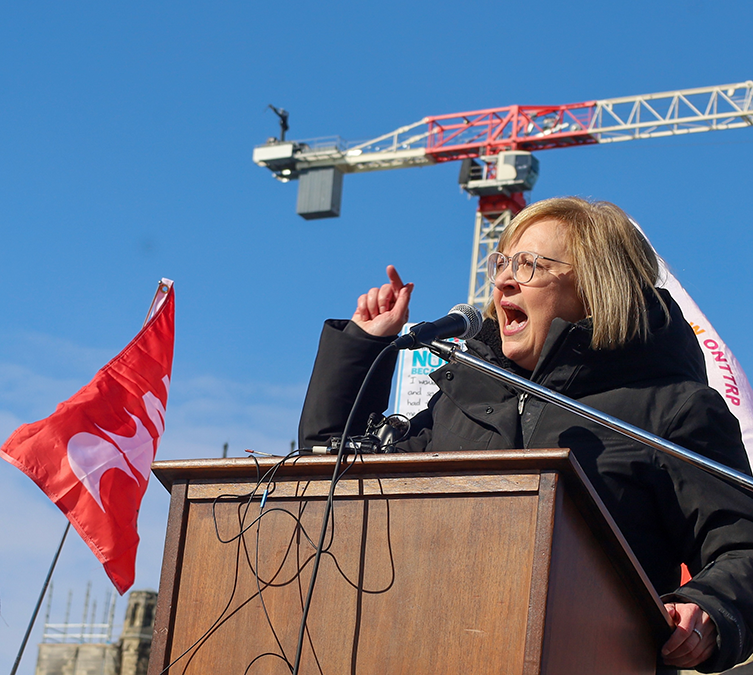

In 2021, a survey conducted by the Canadian Medical Association (CMA) indicated that 53 per cent of doctors reported experiencing burnout, an increase from the 30 per cent reported in 2017. Concurrently a survey by the Registered Nurses Association of Ontario demonstrated that over 75 per cent of nurses qualified as burnt-out the same year.
“We know there is a movement in this country to privatize our health-care system, privatize the existing and a reluctance to publicize the other part,” Vipond said.
“And what do we know? We know that profit doesn’t care. But we care.”
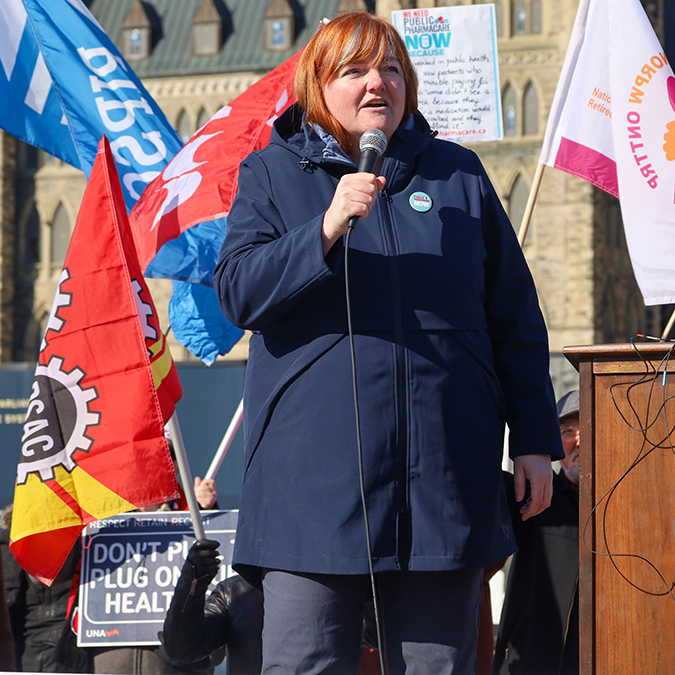

If a deal is not reached by the newly set deadline, the NDP leader told the crowd that the Liberals would be abandoning working Canadians and aligning themselves with big pharma and insurance companies.
“The Liberals have been promising this for 30 years. They’ve been breaking that promise for 30 years. So that’s why we got to fight,” Singh said.
“I looked at the Prime Minister right in the eyes and I said we need this by March 1 […] I made it clear,” the NDP leader added.
Canada’s Parliamentary Budget Office Officer (PBO) estimated that pharmacare costs would be $33.2 billion in 2024-25 (assuming this is the first year of the program), but that “economy-wide spending” would be lower. “This is because historically, drug expenditures of private plans grow at a faster rate than those of public plans,” according to the report.
The Canadian Life and Health Insurance Association opposes the plan, warning that Canadians, many of whom have private drug plans, will lose access to many drugs.
A former health policy researcher disputes that claim and points out that countries like Australia, which have single-buyer systems, have much lower drug costs.
Looking ahead at the March 1 deadline, the recent rally embodies heightened anticipation and pressure on the federal government to fulfill its commitment to introducing pharmacare legislation as negotiations continue.

